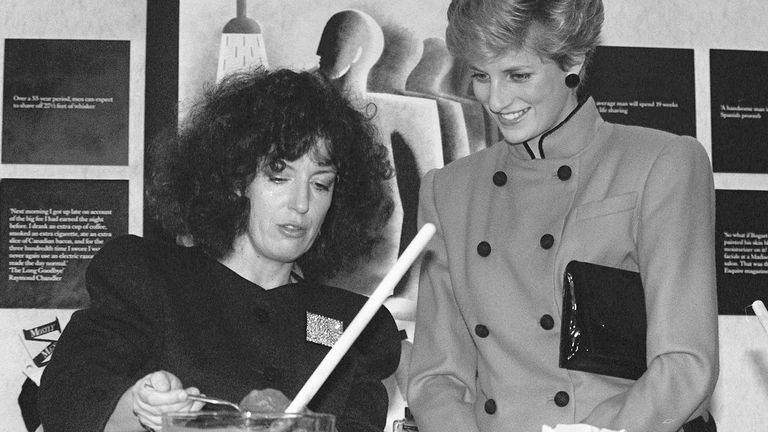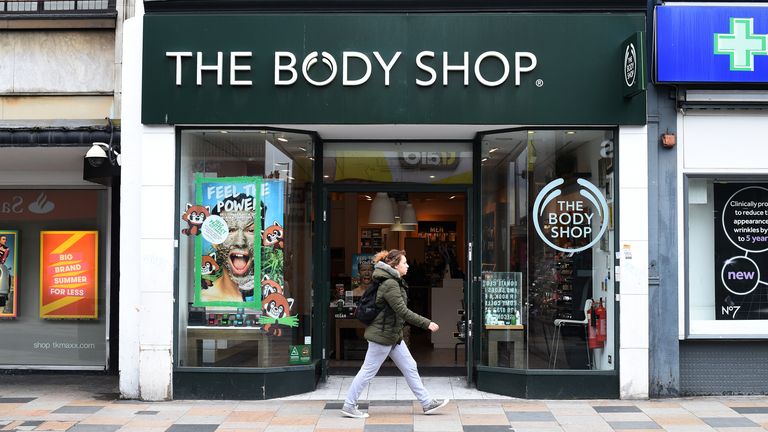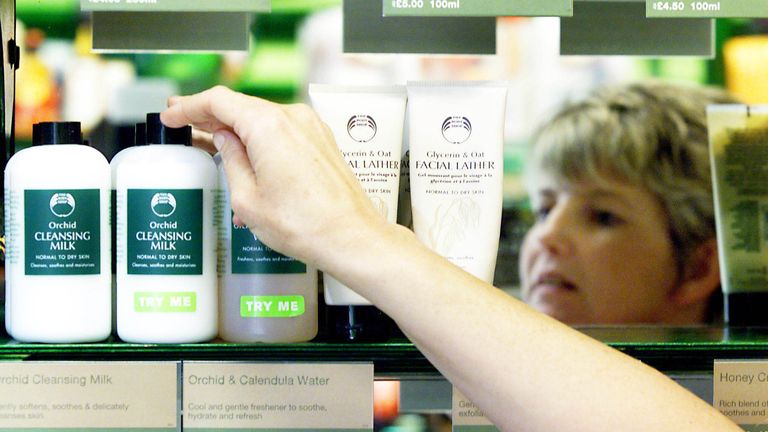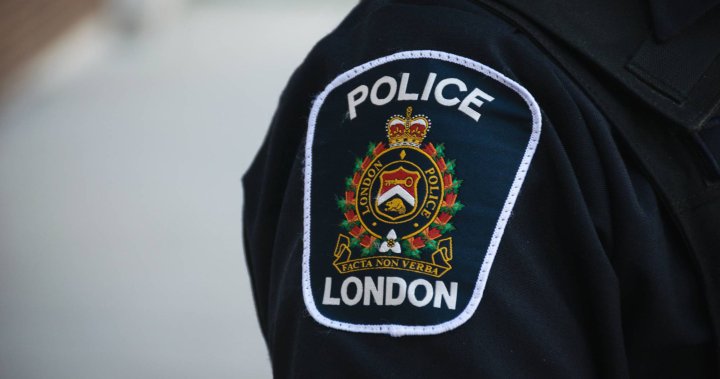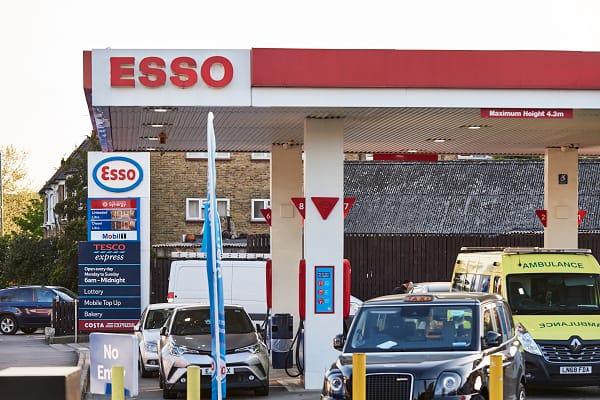Shopping
The Body Shop UK in administration – what went wrong?

The Body Shop was an innovative, fiercely ethical and thriving part of the British high street for almost five decades.
To enter a store was an assault on the senses from colour to exotic names and fragrances. We had never seen the like before.
Though confirmation on Tuesday that the UK arm had been placed in the hands of administrators came as no surprise.
Money latest: Inflation to rise on Wednesday, experts say – here’s what it could mean for interest rates
Sky News revealed on Saturday how the group’s latest owners were preparing the ground for an insolvency process of the UK business.
So, what went wrong for The Body Shop?
From small beginnings…
The business was founded in 1976 by environmental campaigners Anita Roddick and her husband Gordon.
They looked to champion ethical products while their opposition to the animal testing of cosmetics was also a unique selling point within the industry.
It was also a feminist brand that, over the decades, challenged the industry’s perceived view of how women and girls should look.
The Body Shop grew from a single outlet in Brighton with just 25 products and listed on the London Stock Exchange in 1984.
No longer in full control
Roddick admitted in 2001 that the flotation was a double-edged sword.
While it gave the company the money to continue its expansion, she said investor appetite for profits and rewards meant the company had effectively lost its soul.
She stepped away from day-to-day management of the firm in 2002 and it was sold in 2006 to L’Oreal for £652m.
She and Gordon made about £130m from the sale, three years after she was made a dame.
Roddick died in 2007 following a brain haemorrhage. She was 64.
Life after the Roddicks
While The Body Shop brand lived on, and continued to grow its international presence, L’Oreal’s ownership was dogged by questions from customers on whether their values were aligned.
The French cosmetics firm sold The Body Shop in 2017 to Brazil’s Natura for £877m.
It was at this point that things took a big turn for the worse, with the strain of increased competition in the ethical products sphere from the likes of Lush being exacerbated by huge disruption to demand from the COVID pandemic.
Natura sold the brand to the private equity firm Aurelius last November.
The price tag was just £207m. At that time, The Body Shop employed about 10,000 people and operated roughly 3,000 stores in 70 countries.
Another owner…
Aurelius said it wanted to “re-energise” the company but it later emerged that it had sold off its Body Shop at Home division, which was struggling financially.
It concluded that more drastic action was needed as the company had insufficient working capital and was trading more weakly than it had anticipated over Christmas and early January.
The UK operation, with its 200 stores, was said to be struggling more than elsewhere, culminating in the restructuring process being handled by FRP Advisory.
In conclusion
You could certainly argue that Dame Anita Roddick was the beating heart of The Body Shop and that her loss meant that the brand was no longer the fierce champion for the many causes that attracted customers in the first place.
Financial analysts say that its failure to attract new customers in a crowded market was key.
Susannah Streeter, head of money and markets at Hargreaves Lansdown, said: “In the 1980s, The Body Shop was the place to go for young shoppers to splash out on fresh scented bubbles and beauty ranges, with a deep environmental conscience and a focus on social justice and conserving nature.
“But now stores like Lush hold the bigger pocket money draw for tweens and teens, lured in by fragrant bath bombs and innovative product ingredients.
“Rivals have stolen a march on what used to be The Body Shop’s unique eco-credentials.”

